#jake magus
Explore tagged Tumblr posts
Text

doodle page we've been tossing back n forth
I like these ones the best.


#so swamped. will probably have my old schedule back after next week hopefully#the top right fern is a pose that Babbs lifted from 2finns i think#his#his/ours#doodle page#fern the human#finn the human#finn mertens#huntress wizard#jake the dog#shoko#princess bubblegum#tiffany oiler#flame princess#ice king#life giving magus#simon petrikov#stolencandy#bubbline#finnfern#vanlife au#adventure time
202 notes
·
View notes
Text

An illustration of a trend I saw several months ago.
It was fun to do, and even more so because it was a challenge!
❤️ What can I say, I love aliens and monsters ❤️
#my art#fanart#artists on tumblr#masseffect#bioware#garrus vakarian#mass effect javik#jaal ama darav#transformers idw#tf ironhide#avatar the way of water#jake sully#district 9#christopher johnson#venom symbiote#knuckles the echidna#predator#yautja#arcane league of legends#steb arcane#elias ainsworth#the ancient magus bride#monster romance
147 notes
·
View notes
Text

WOOOOOO this took a while but it was worth it fooooor
DAY 100
Tysm for @dorito1133 for the idea!! (and also for suggesting to put Teleport Princess in there!)
#nossie draws#daily doodle#adventure time#finn mertens#bmo#jake the dog#princess bubblegum#flame princess#fern the human#peppermint butler#marceline abadeer#neptr#tree trunks#ice king#simon petrikov#gunter the penguin#lady rainicorn#huntress wizard#prismo the wishmaster#hotdog princess#banana guard#lumpy space princess#magic man#life giving magus#abracadaniel#lemongray#susan strong#sweet p#mr pig#slime princess
69 notes
·
View notes
Text

some more adventure time stuff
276 notes
·
View notes
Text
adventure time writers: and then i sprinkle some daddy issues on top of the character's backstory
#adventure time#at#think about it#marceline? fry-stealing daddy issues.#flame princess? daddy issues.#LSP? daddy AND mommy issues.#finn? DOUBLE daddy issues.#jake the dog? didn't-let-him-finish-speaking daddy issues.#life giving magus? daddy issues.#AMO? daddy issues.#I'm not complaining btw it's just that I couldn't help but notice all of a sudden
4 notes
·
View notes
Note
hey!! hope this isn't super random. I'm an eclectic pagan, trans and nd. ive been researching and practicing since ive been roughly 9/10ish. your blog gives me good vibes. I was wondering if you have any book reccomendations? (Specifically on demonaltry but honestly anything is cool, i really admire your practice) i hope you have a nice day :3
For Demonolatry specifically I always recommend "The Complete Book of Demonolatry" by S. Connolly as well as "The Complete Book of Demonolatry Magic" by J Thorp.
"Lucifer and The Hidden Demons: A Practical Grimoire from The Order of Unveiled Faces" by Theodore Rose,
"Consorting with Spirits: Your Guide to Working with Invisible Allies" by Jason Miller.
"The Practice of Magical Evocation" by Franz Bardon,
"Goetic Evocation" by Steve Savedow,
In terms of dictionaries and demonology books I'd recommend
"The Dictionary of Demons: Expanded and Revised: Names of the Damned" by Michelle Belanger,
"Pandemonium: A Discordant Concordance of Diverse Spirit Catalogues" by Jake Stratton-Kent,
"Demonolator's Handbook" by Mirta Wake.
In terms of books that have to do specifically with queer paganism I would recommend:
"Sacred Gender" by Ariana Serpentine
"Casting A Queer Circle: Non-Binary Witchcraft" by Thista Minai
"Beyond the Queer: A Chaos Magick Grimoire for True Liberation" by Paradox Magus
and more specifically to do with Ishtar worship but also has some neat gems about queer paganism in general, "Way of the Ishtarite" by Siri Nin
Pretty sure most if not all of these can be found on Amazon or on Anna's Archives.
#pagan#paganism#witchcraft#lucifer devotee#lucifer deity#demonology#theistic luciferianism#demonolatry#occultism#luciferian witch#lefthandpath#queer pagan#trans pagan#deity work#deity witchcraft#magick#deity worship
81 notes
·
View notes
Text
Please submit through a reply or message any platonic pairings you would like to see in the tournament. I will update this post as I receive suggestions. If we get no new suggestions for at least a couple days, I'll go ahead and start the tournament.
Finn & Jake
Finn & Flame Princess
Finn & Bubblegum
Simon/Ice King & Marceline
Bubblegum & Neddy
Lumpy Space Princess & Marceline
Added: Finn & Marceline Bubblegum & Peppermint Butler Prismo & Cosmic Owl Finn & Tiffany Ice King & Abracadaniel Ice King & Life-Giving Magus Ice King & Island Lady Susan & Frieda Peppermint Butler & Death Finn & Ice King Finn & Fern Jake & Princess Bubblegum Jake & Prismo Bubblegum & Lady Rainicorn Finn & Susan Jake & Flambo Jermaine & Jake Turtle Princess & Lumpy Space Princess Marceline & BMO NEPTR & BMO Finn & Slime Princess Finn & Tree Trunks Jake & Tree Trunks Jake & Tiffany Shermy & Beth BMO & Football TV & Lee Ice King & Gunther King of Ooo & Toronto Tree Trunks & Shelby Jermaine & Bryce Ancient Psychic Tandem War Elephant & Maja Flame Princess & NEPTR Finn & BMO Jake & BMO Lumpy Space Princess & Melissa Princess Cookie & Finn Princess Cookie & Jake Lemongrab & Lemongrab Gunther & Nina Magic Man & Betty Shoko & Bubblegum Ice Finn & Farmworld Lich Fern & NEPTR Finn & Banana Man Jake & Banana Man Jake & Shelby
36 notes
·
View notes
Text
WELCOME! °˖✧
This magus ask blog is run by @crabussy!!! guidelines below!
✧ you don't have to be polite but I am more likely to answer friendly questions!! please don't be rude to me but you can be rude to magus.
✧ I want to keep this blog relatively SFW, but suggestive questions are allowed to an extent!! if you're not sure if your question is okay, send it in anyway! if I can't answer, I just won't [: no shame!
✧ please ask a question only once! I am not more likely to answer it if you send it in multiple times.
✧ you can ask about other characters!! in this AU/version of adventure time, magus and simon are in a relationship. magus is friends with abracadaniel, ron james, little dude, finn and jake, fionna (introduced by simon!) and marceline. some friendships are stronger than others!
✧ you can ask questions about their life, career, friends, hobbies, habits, fears, childhood, magic, opinions, dislikes, etc!!! go wild!! the more interesting the question, the more likely I am to answer!!
✧ you can ask magus questions directly, or ask about them! you may get slightly different answers (we love a good unreliable narrator. I will clarify if something they say is untrue!!)
✧ responses will be sketches so that I can do a lot!!! they might be more realistic or simplified depending on the situation.
#life giving magus#adventure time#lgm adventure time#magus adventure time#life giving magi#ancient sleeping magi of life giving#atimers#ask blog#adventure time ask blog
17 notes
·
View notes
Text
listen I know the American Dragon: Jake Long fandom is small but I think it is a shame that people haven't really utilized the fact that Lilo and Stitch: The Series had a crossover episode with the show
like, where are my aliens chilling at the Magus Bazaar
#I never utilized that when I wrote AD:JL fic tho I will admit#I am part of the problem :c#man I love AD:JL. one of my faves.#speecher speaks
8 notes
·
View notes
Text
finn and jake get the life magus to give fern tree life in hopes that it’ll revert him but instead his face just appears in the wood and he’s stuck in one spot forever and miserable
8 notes
·
View notes
Photo



the least popular cafe in town (+ some oc doodles!)
#please don't mind that i have no idea how foreshortening and perspective works ty <3#contra art#contra ocs#original characters#cafe#original art#artists on tumblr#silver lee#jake magus#evan cliffe#lily cleary#constant flint
11 notes
·
View notes
Text

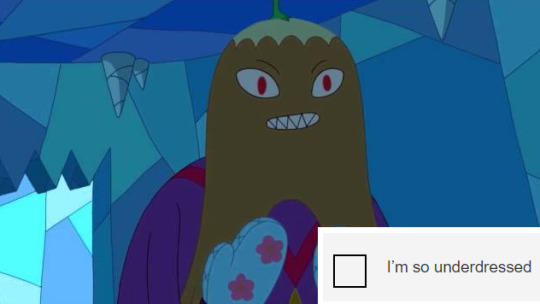

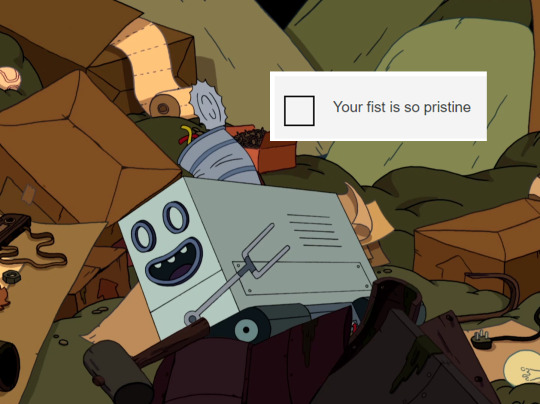
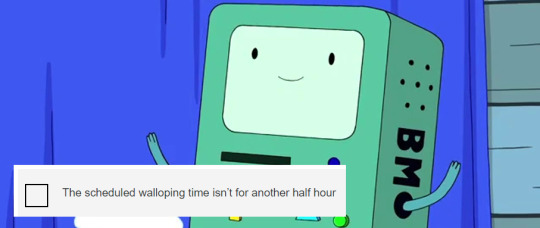






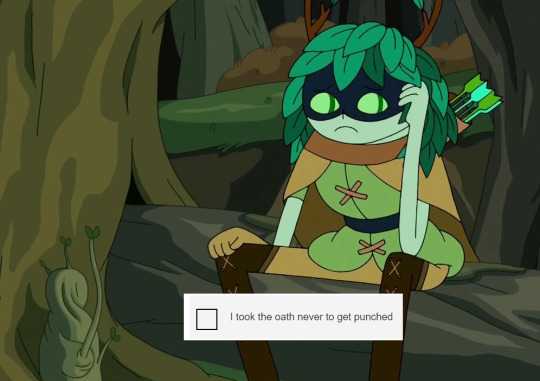
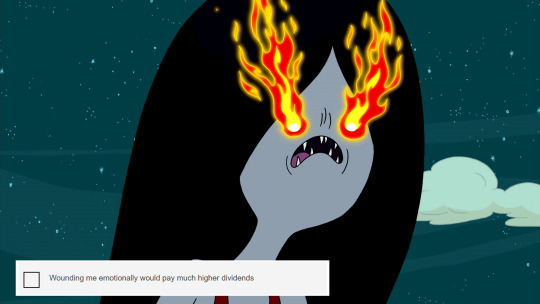
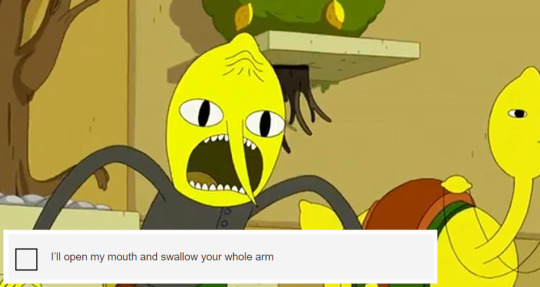




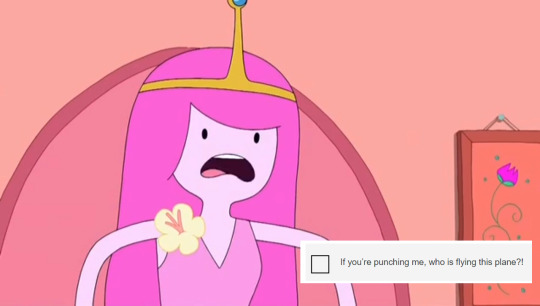

#adventure time#adventure time with finn and jake#atimers#Ancient Sleeping Magi of Life Giving#Life Giving Magus#Martin Mertens#NEPTR#BMO#adventure time bmo#Sweet P#lady rainicorn#Shelby#shelby the worm#Shelby Butterson#Shelby the Worm Who Lives in Jake's Viola#finn the human#jake the dog#huntress wizard#finn mertens#marceline#marceline the vampire queen#marceline abadeer#lemongrab#the earl of lemongrab#cinnamon bun#lumpy space princess#lsp#fern the human#adventure time lsp#tree trunks
1K notes
·
View notes
Text
Yall I am so fucking close to saying fuck it and diving head first into The Order fandom. Like im on episode five and im trying to hold myself back from potential spoils and im very tempted to just y e e t myself into the fandom and hope theres no consequences for doing so help
14 notes
·
View notes
Text
I liked Wizard City in terms of being a different story compared to the other three. It explored Wizard City itself a bit and put an Academy that was Hogwarts-y to develop the story. It needed that Harry Potteresque enviroment and some other of Clue in terms of setting a mysterious atmosphere, besides that secret cult too.

It was nice watching more of Pep But nature too: he is a loner guy who is selfsufficient and doesn't need others' help. Cadebra worked as the sidekick and I think it was the best of the newcomers compared to Y5 and Glass Boy (Tiffany doesn't count).

Also nice of watching magical people again like Ron James, Buffo, Little Dude, Life-Giving Magus and CHOOSE GOOSE AND THAT CLIFFHANGER!

Anyway, this temporal good-bye too Land of Ooo was nice to watch and quite enjoyable. Let's wait for that Fionna and Cake series!

PS: Pep But and PB a wrestling duo? Awesome! Also that photo album hanging out with Hunson, Death and Jake too!



160 notes
·
View notes
Text
A Short History of Goetia and its Practitioners, by Jake Stratton-Kent
I follow the great and learned master of goetia, Jake Stratton- Kent, on Facebook, where he recently unleashed this short history of the art and its practitioners. It gets to the heart of some things I have been trying to convey to people. That goetia is much more than the Medieval grimoire tradition, and the PGM. It’s a thread of the Western Esoteric Tradition, which can be traced back to pre-history and our animist forebearers. If all you are using it for is to mess around with the 72 demons of the Lesser Key, you are leaving so much on the table. By his gracious permission, I share it here on Scroll of Thoth with you.

In the Classical and Hellenistic period, the devalued status of the term ‘goen’ has become comprehensive; it is used by magicians and miracle workers, or their apologists, to describe ‘the other guy’s magic’, as well as by sceptics and satirists to describe magic and miracles in general. The historical devaluation of the term left no room for the impartial observation that formerly goetia represented approved practices and persons, comparable with similar figures of other times and cultures. That recognition demanded the modern developments of scientific historical techniques, including philology and anthropology.
Thus a combination of negative image, misleading associations and confused semantics has prevented the historical identification of goetia as the original core, and the earliest designation, of Western magic. The term ‘magic’ is associated with the Persian ‘magus’ which entered Greek usage as a loan word no earlier than 600 BC, while the term ‘goetia’ is Greek and originally referred to older Greek customs and beliefs. Neither term was originally derogatory, though both have suffered historical devaluation; rather more in the case of ‘goetia’. Accordingly, to understand the original meaning and appreciate its significance, associations deriving from its later history must initially be put aside.
The modern analysis of these references is primarily focused on the so called ‘Greek shamanism’ controversy. It remains for occultists such as myself to delineate what these findings imply for the history and development of Western magic, and the possible significance of goetia to ‘post-modern’ magic. The academic world has performed a signal service by establishing that the term ‘goetia’ has a very long and chequered history, the origin of which lays in the ancient Greek word, ‘goen’ or ‘goeten’. One important finding that has emerged is that this root refers not to the arts practiced, but to the individual practicing them. It is from the ‘goen’ that such arts take their name, rather than the other way round; goetia is what a ‘goen’ does. The original identity of this individual is thus more critical than any secondary definition of the arts associated with them. Who they were, and what their role was, are among the most decisive questions in the history of ‘Western’ magic.
In addition, the etymology of ‘goen’ connects with other Greek words signifying lamentation, particularly a lament for the dead. The ‘goen’ was ‘one who performs a lament’ in the funerary rites of early Greek religion. Eustathius, a highly esteemed Greek commentator on Homer flourishing at Constantinople in 1170 CE, derives ‘goen’ from ‘goos’: to moan, a mournful sound. He defines the ‘goen’ as ‘ton meta goon epadonta’: one who utters his incantations or spells in a mournful tone.
The ‘goen’, who for various reasons cannot be termed ‘he’, was originally quite distinct from the anti-social and marginalized sorcerer. On the contrary, the arts of the ‘goeten’ were performed openly on behalf of the community. Later on the term came to be loosely interchangeable with others, such as the ‘pharmacoi’ who took their name from the drugs employed, and so on. Whereas these neuter terms refer to the arts practiced, the etymology of ‘goetia’ is the ‘goen’, a person. It is not the arts practiced that define the ‘goeten’ and their abilities, but personal inner resources (what might be termed their ‘goet-ness’ or ‘goet-hood’). This is only to be expected from a phase of culture wherein magic is not perceived as a specialized or marginalized sphere of activity, but permeates the whole of existence.
In literary sources this ‘lamenting magician’ was also called a ‘psychogoge’ or guide of souls, a term which had the additional meaning of ‘necromancer’. In the play The Persians, by Aeschylus (died 456 BC), the ‘works of the psychogoge’ and the magical effects inherent in the act of ‘lamenting’ (‘gooin’) are usefully portrayed. There is a dramatic scene where the shade of the Persian Emperor Darius is summoned by the rites of a royal hero cult, which is highly illustrative:
‘and you around my tomb
Chanting the lofty strain, whose solemn air
Draws forth the dead, with grief-atemper’d notes
Mournfully call me:’
The context is important too, a great disaster had overtaken the Persian invasion of Greece. Senior Persian nobles wished to consult the former Emperor’s shade, since he was assumed to have foreknowledge of what was to follow. Cicero in his work On Divination remarked that ‘none among the Persians did enjoy the Kingdom but he that had first learned magic’. In reality even though Aeschylus’ play portrays the Persians as adept in magic, by comparison with other evidence it is certain that the rites portrayed represent Greek beliefs and customs, wherever they may have obtained them.
It also cannot be overlooked that the ritual is performed by nobles; of the family and peer group of the deceased. This equates with the evocation performed by Odysseus in the eleventh chapter of the Odyssey, and is by no means unique. Among the Greeks and other nations, soothsayers and other skilled individuals routinely accompanied military expeditions. They were of the same social class as the chiefs and their staff, and often led contingents of their own. In addition, in Greece and Persia alike, aristocrats and rulers officiated in rituals of state, of temples and of the palace. These rites involved special knowledge as well as particular status.
While valuable it is a fact that the literary evidence tells us comparatively little about magical specialists. All the same, it is clear that the beliefs such arts represented were common to the culture as a whole. An extensive comparison of the sources also provides many valuable details, no matter how complex and varied they might be. There are great complexities in unravelling the social status of various strands of magical practice. To a degree however Aeschylus and others simply show us that such rites and practices formed part of the overall culture.
Bearing in mind that the rites of mourning were seen as possessing the power of evocation, it is also a known fact that mourners could be hired. Certain backgrounds could also recommend particular individuals for the role, such as Mysian origin. There is also no doubt that full-time specialists in evocation existed (on the staff of a necromanteion for example).
Such rites and such magicians had the power to guide souls to the underworld, and to summon them at need to the world of the living. Indeed, they formed a bridge between the worlds in their own person. Such a guide of souls was personified by the god Hermes, who became a pre-eminent deity of magicians. He was able to travel vast distances at speed, and to visit and return from the Underworld. In Classical times there was a sacrifice to honour the dead the day after their demise; a further rite was offered to Hermes a month later.
Plato often speaks scathingly of such practices, describing the officiants as ‘mendicant prophets’. In the Symposium when speaking of the power of the Daimon called Love, who is intermediate between gods and men, he says: ‘in him all is bound together, and through him the arts of the prophet and the priest, their sacrifices and mysteries and charms, and all, prophecy and incantation [the word used is ‘goetia’], find their way’. From these references it is plain that very often those he speaks of as ‘goen’ were priests of permitted religions. This included both ‘wandering priests’ connected to the Orphic tradition, and those of temples and oracles in general. He says of them that they ‘go to rich men's doors and persuade them that they have a power committed to them by the gods of making an atonement for a man's own or his ancestor's sins by sacrifices or charms, with rejoicings and feasts’. Also that ‘they promise to harm an enemy, whether just or unjust, at a small cost; with magic arts and incantations binding heaven, as they say, to execute their will’.
There are striking resemblances in his language to what was later said of medieval and Renaissance magicians, of whom many were priests. For example: ‘they produce a host of books written by Musaeus and Orpheus… according to which they perform their ritual’. One has only to alter the names of the putative authors to put this in the mouths of later critics of what Cornelius Agrippa called ‘Goetians’ and ‘Necromancers’, with their books of Solomon, Enoch and so forth. Indeed there is evidence suggesting that the grimoires called ‘Books of Moses’ were originally inspired by ‘Books of Musaeus’.
In what appears to be a reference to Epimenides and others he adds that they ‘persuade not only individuals, but whole cities, that expiations and atonements for sin may be made by sacrifices,’ by magicians who ‘are equally at the service of the living and the dead; the latter sort [of ritual] they call Mysteries’. The dead were referred to as ‘Demeter’s people’, and the Mysteries of Eleusis were in honour of Demeter. From Plato’s critique, along with archaeological and other evidence, a clear picture emerges. Despite an ongoing process of devaluation in the Classical period, the ‘goen’ and the necromantic arts were initially a respectable part of archaic religion. With or without the approval of Plato and supposedly ‘rational’ philosophy, many aspects of this archaic religious magic continued throughout the Classical period. Indeed they survived into the Christian era. Eventually it was to be perpetuated – at least in part - by elements of the Christian clergy. This was the so-called ‘clerical underground’ who composed the grimoires, adapting Byzantine and Arab texts based on Greco-Roman models to a more acceptable theology.
A clear and solid fact emerges from the complex and incomplete evidence available. The most spectacular aspect of the activities of the goeten was associated with the dead. The association of goetia with necromancy has been a consistent part of its identity, long after its ancient origins were forgotten. In ancient times – as now - rites for the dead were an essential aspect of religion. The role of the ‘lamenting priest’ in relation to death had several aspects. One of these involved guiding the soul of the departed to the underworld. This served the purpose of ensuring their safe arrival in the afterlife. On the other hand a spirit for whom such rites had not been performed was all too likely to return seeking revenge.
This is Cornelius Agrippa’s meaning when he says:
the Ancients ordained expiations of Carcasses, that that which was unclean might be sprinkled with holy water, perfumed with incense, be conjured with sacred orations, have lights set by, as long as it was above ground, and then at length be buried in a holy place. Hence Elpenor in Homer: “I beseech thee (saith he) Ulysses, be mindful of me, and leave me not unburied; lest being unburied I become an object of the Gods wrath”.
Dependent on circumstances the repertoire of the ‘goen’ included two options: cure or prevention. Thus the laying of ghosts was a natural extension of their role; as also the prevention of such an eventuality in special circumstances. These circumstances include deaths at sea, or in distant places. Elpenor was such a figure; unknown to Odysseus prior to sailing on his necromantic adventure Elpenor had died accidentally in a fall from the roof of Circe’s house, and lay unburied. He thus had two reasons to be a restless spirit, an untimely death and lack of due burial. Indeed, he was an ideal spirit for necromantic work as depicted in the papyri. His presence in the narrative may represent a variant tradition in which Elpenor rather than Tiresias was the guide or intermediary.
The role of the lamenting priests, and beliefs and practices concerning them, can be traced back into the archaic period of Greek religion. Excavations at one Mycenaean shaft-grave at Dendra revealed no human remains. In their place was a sacrificial altar complete with knife. Besides this were found a hearth and three sacrificial pits. In one of these pits animal bones were discovered. Most impressive of all were two monoliths, each shaped to resemble a human outline. These appear to have served either as surrogates for the absent deceased, or possibly a habitation for them during the rites performed here.
In other Mycenaean tombs, where burials had taken place, were found pits never used for burials but for burnt offerings. Into these would have been poured blood from sacrifices, also other libations, of wine, honey and milk. Nor did these offerings cease with the burial. The evidence for subsequent offerings is strong in excavated Mycenaean burials, including sacrificial pits sited over graves, and animal bones at the entrances of tombs. Deducing from the practices of later Greek religion, such offerings took place on the third, ninth and thirtieth days after death, and thereafter each succeeding year. Such rites were of course intended to honour the dead, but also to appease and consult them. The discovery of pottery in Mycenaean graves which dates from the later Classical and Hellenistic periods is significant physical evidence of long enduring ‘hero cults’.
It cannot be certainly stated that these cults were continuous; revivals may have been inspired - somewhat ironically - by the prestige of Homeric heroes in later times. Such caution is important to a reconstruction of Greek history. It is clear too that originally the Mycenean tomb cults were family cults, whereas the later hero cults were associated with cities and shared by the general population. This aside, it has become clear as archaeology has proceeded that the Classical Greeks were the heirs of the Mycenaean past, just as early modern Western culture was the heir of Classical Greece. Also, whether continuous or revived, the important place of the cult of the dead is a vital element of this study. It has enormous importance to the history of goetia, from the Greeks to the Grimoires. The funerary and necromantic rituals performed by Odysseus in both Iliad and Odyssey clearly have connections with Mycenean practice, and that in the Odyssey was also a model for later necromantic practice, regardless of the changes from one cultural era to the next. Regardless, in particular - to anticipate ourselves a little - of where exactly the ‘Underworld’ was from one era to the next.
14 notes
·
View notes
Note
An anime where you like the style a lot? Even if you don't like the anime?
Oh i LOVE anime!!!!!
Hrm a style I like a lot even if I dont like the anime tho?
I can't think of one like that, but I can say I adore Ancient Magus bride!!!!! I'm super behind on the manga tho lol
Tho if we talk there's a manwha i love the first volume style and story but subsequent volumes just... its still pretty but i have issues.
It's called "March Story" and it's only 5 volumes. I own all five combined with my sister (I own volumes 1, 3, 4, 5. she owns vol 2)
the first one is gorgeous and the stylization is consistent and it set up a fun world
but later volumes the anatomy (on women at least) started to heavily lean on them looking 'younger' and the lead character who was rather androgynous in the first volume was really femm and while that's not horrible it just wasn't my cup of tea to see her reduced from as tough as she was to having to be saved.
But god the linework and such

Like it's so tasty of a rendering (this is from the first volume)
It's pretty gory and fanservicey (but also not its weird)

but like look

I think it suffered from trying to condense down into the 5 volumes and changing it from 'monster of the week' to an over arcing plot fell a little short
I'm a real sucker for really sharp and bold linework in stuff like this. I personally can't do it because I get distracted and lose focus but man
But yeah I do love the series but I have a LOT of problems with it past the first volume, like heck even volumes 1-3 are fine but then in 4 it goes downhill plot wise for me
but we stan our queen jake

this story did you dirty and you deserved the world
#ask#anon#bun rambles#i mean i could ramble like theres other animes i love the style of#like soul eater summer wars blood+ the witch and the beast#the witch and the beast i need to order the next couple volumes cuz its hard to find scanlations but GOD the art good#as i said im a sucker for linework
3 notes
·
View notes